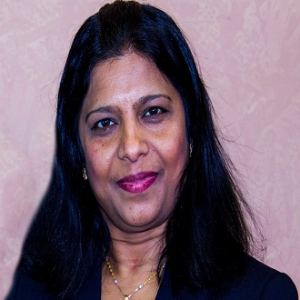Title : Self-awareness of civility among nursing faculty in creating a positive learning environment
Abstract:
Background: Students learn most effectively in environments that facilitate learning by encouraging and supporting and making them feel they are part of the team. If the classroom environment is unpredictable, unstructured and overwhelming, students can be left with feelings of vulnerability and anxiety. Each faculty member is responsible for being a positive professional role model and setting the best example for students in the classroom for the safe and open exchange of ideas. It is essential for the faculty to be aware of his/her civil behavior in front of students in the classroom. Although selfawareness of the faculty is the strongest predictor of overall success of the students’ learning in the classroom, no research has systematically examined the faculty’s self- awareness of civil behavior. Objective: To examine nurse faculty’s awareness of their civil behaviors in creating a positive learning environment (PLE).
Method: An exploratory descriptive research design utilizing an online web-based survey as a means of exploring the perceptions of nursefaculty of their civil behaviors in the classroom in creating a PLE. Data was collected using the demographic questionnaire and “Civility Index for Faculty”, self-report questionnaire consisting of 20 items on nurse faculty’s civil behaviors in Creating a PLE. Data Analysis: Descriptive statistics - to describe the demographic variables and total score of civility. Correlations between demographic variables (age, education, years of nursing experience, years in teaching nursing students); and tests of differences across demographic variables (ethnicity and education) and their awareness of civil behavior in the classroom in creating a PLE.
Results: Findings revealed that nurse faculty are aware of their civil behavior that they are very civil (74%), civil (23%), and moderately civil (3%) in order to create a PLE. Conclusion/Implications: This information is instrumental for raising awareness among nurse faculty and determine strengths and opportunities for civility improvement whereby nurse faculty’s professional behaviors towards classroom and students would be appreciative in order to create and enhance a PLE for students. Faculty’s civil behavior foster positive faculty-student relationships that would empower positive learning environment.
Take Away Notes:
• Self-awareness is a deep understanding of one’s emotions, strengths, weaknesses, needs, and drives. Learning more about ourselves and the way we commonly respond in certain situations can give us greater confidence in communicating with others. When we identify and address our areas of growth and improvement, we increase our ability to interact with civility.
• As each faculty member is responsible for being a positive,professional role model and setting the best example for students in the classroom for the safe and open exchange of ideas. From a variety of perspectives it is concluded that civility in the classroom is of the utmost importance for encouraging a healthy, peaceful learning environment for students.
• Yes, other faculty could use to expand their research or teaching nursing students. If faculty’s professional behaviors towards classroom and students are appreciative, the future patient care providers, the present student nurses, will grasp the good behavior from their faculty, adopt and apply them for providing quality care to the patients.
• If the environment is unpredictable, unstructured and overwhelming, students can be left with feelings of vulnerability and anxiety. If faculty show what civility looks like through his/her own behaviours encourage students to adopt civil behaviors, and promote professional skill development in the classes, they can create and enhance a PLE.



